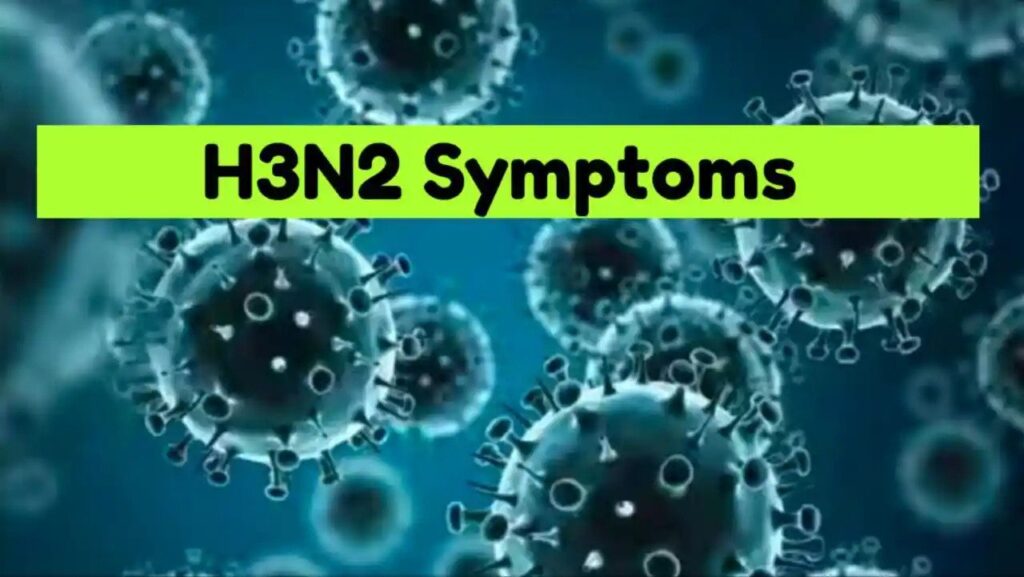H3N2 influenza, also known as the H3N2 virus, is a subtype of the influenza A virus that causes seasonal flu outbreaks in humans. It is named after the types of two proteins found on the surface of the virus, hemagglutinin (H) and neuraminidase (N).
The H3N2 virus was first identified in 1968 and has since caused several pandemics and epidemics around the world. It is particularly known for its ability to mutate quickly, which makes it difficult to control and prevent.
H3N2 influenza Symptoms:

H3N2 influenza, also known as the “Hong Kong flu,” is a strain of the influenza virus that can cause a range of symptoms in infected individuals. Some of the common symptoms of H3N2 influenza include:
- High fever (often above 101°F or 38.3°C)
- Coughing
- Sore throat
- Runny or stuffy nose
- Body aches and headaches
- Fatigue and weakness
- Chills and sweats
- Nausea, vomiting, and diarrhea (more common in children)
Symptoms typically appear one to three days after infection and can last for up to a week or more. In some cases, individuals may experience severe symptoms or develop complications, such as pneumonia, which can be life-threatening, especially in older adults, young children, and people with underlying health conditions. It is important to seek medical attention if you experience severe symptoms or if you are at high risk for complications.
H3N2 influenza Treatment:

There are several treatments available for H3N2 influenza, but the most effective course of treatment will depend on the severity of the infection and the individual’s overall health.
Antiviral Medication:
Prescription antiviral drugs like oseltamivir (Tamiflu), zanamivir (Relenza), and peramivir (Rapivab) can help reduce the severity and duration of H3N2 influenza if taken within the first 48 hours of symptom onset. These drugs work by inhibiting the replication of the virus, but they are most effective when started early in the course of the illness.
Over-the-counter Medications:
Antipyretics and analgesics like acetaminophen (Paracetamol ) or NSAID’s (Ibuprofen,aceclofenac) can help relieve fever, body aches, and headaches associated with H3N2 influenza. Cough suppressants and decongestants may also be helpful in alleviating respiratory symptoms, but it’s important to consult a physician before using these medications, especially in children.
Rest and hydration:
Resting and drinking plenty of fluids can help the body fight the virus and prevent dehydration. It’s important to stay well-hydrated, especially if you are experiencing diarrhea or vomiting.
Hospitalization:
In severe cases of H3N2 influenza, hospitalization may be necessary. Patients may require oxygen therapy, intravenous fluids, and other supportive care.
It’s important to seek medical attention if you suspect you have H3N2 influenza or if your symptoms are severe or worsening. Additionally, taking steps to prevent the spread of the virus, such as washing your hands frequently, covering your mouth when coughing or sneezing, and avoiding contact with others when you’re sick, can help prevent the spread of the illness to others.
Dr. Ram ENT Hospital is a specialized healthcare facility that focuses on treating conditions related to the ear, nose, and throat. While they may be able to provide supportive care for some symptoms of H3N2 influenza, it is important to note that this is primarily a respiratory illness that affects the lungs and airways. Therefore, seeking care from a primary care physician or a healthcare facility that specializes in infectious diseases may be more appropriate for the H3N2 influenza treatment and diagnosis.
That being said, Dr. Ram ENT Hospital may be able to provide support and treatment for some of the symptoms associated with H3N2 influenza, such as sore throat, coughing, or ear pain.


